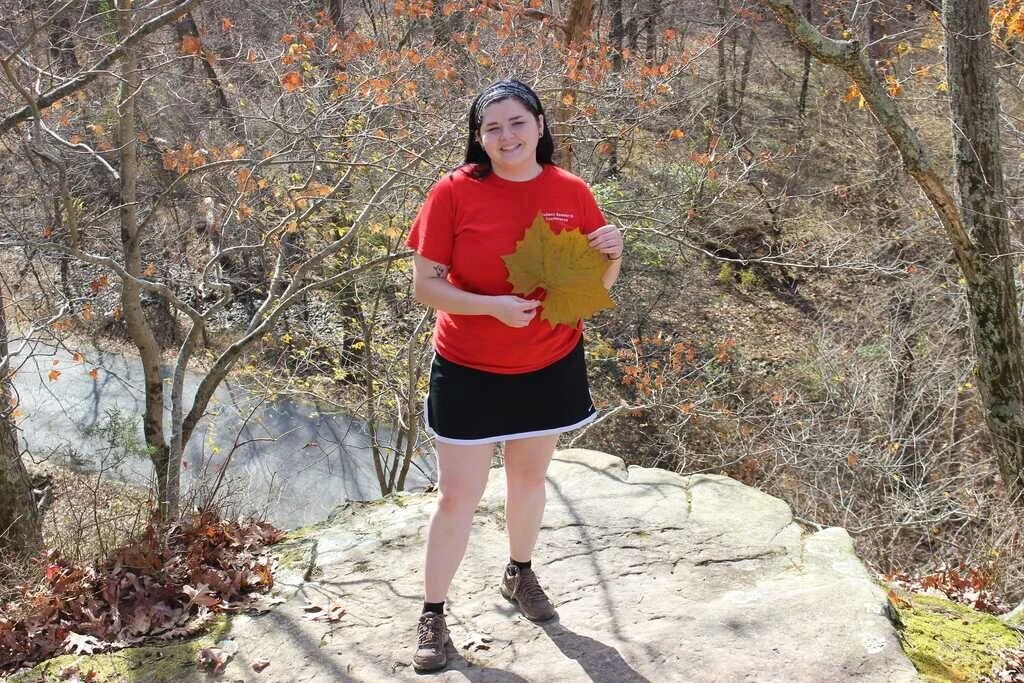HUMANS OF TYSON 2021
Lexie Beckermann
(she/her)
Research Technician
There’s just so much that people don't know about mosquitoes in general. Only female mosquitoes bite you. Mosquitoes live an aquatic life as larvae. There are 3,500 species of mosquitoes and all of them behave differently and have different interactions with things! I feel the main thing our lab can show is how the aquatic life of a larva, that life stage, has a huge effect on mosquitoes as adults. We usually focus on manipulating the larval habitat in order to explore that life stage.
All these things that we know about human health can also be applied, usually, to smaller organisms. If the larva is growing up in an area with low food resources, or super high larval density, which will also lead to low food resources, or growing up in a dangerous area where it could be eaten at any moment, where it's terrified the whole time, then all of those things have carry-over effects into the adult life. That's what we look for in these mosquitoes. For example, if there is super high larval density, that will also lead to low food resources. All of those things that you think about with human health can also be applied to mosquitoes. It's that One Health philosophy in general: the environment affects the health of organisms and people.
“At the end of the day, our job is to try to figure out these mosquitoes, to try and lessen disease burdens in places where they’re the worst.”
How are you inspired by science?
I’ve always been a huge nerd and loved to be outside. I lived in a pretty rural area. My sisters are like five years older than me, so I was always the weird kid, out in the creek somewhere, alone. Whenever I came to Tyson, it was like home. You feel like you fit in, you don’t feel like a super weirdo whenever you're talking about how much you love bugs or how much you love mosquitoes. Even with the other labs, just getting excited about what you're studying or about a plant or seeing a cool moth on the back porch (like we all did last week). Everyone here thinks that's cool. What inspires me a lot is the feeling of community that comes from doing science.
How do you see your team’s work fitting into social change?
There's this urgency that we feel. Our responsibility as scientists is to try and get rid of these vector-borne diseases because they cause so many issues, mainly in places that have been neglected and stripped of their resources by colonizing nations. In those places, people are essentially left fend off vector-borne disease and that kind of stuff by themselves, or they can't get rid of the vector-borne disease because of war and other issues. Then there’s the white-savior complex with mosquitoes in general. How are you supposed to garner trust within these communities when there is so much history behind vector-borne disease and injustice? I think it's super important in our lab that we always have in mind that at the end of the day, our job is to try to figure out these mosquitoes, to try and lessen disease burdens in places where they're the worst.
Lexie worked with Katie Westby and Kim Medley's Mosquito Disease/Ecology team during summer 2021. An alum of the SIFT, TERA, and Tyson undergraduate fellows programs, she has previously worked with the team during summers 2015, 2016, 2017, 2018, and 2019. Learn more about their urban ecology research here and their container mosquito research here.


